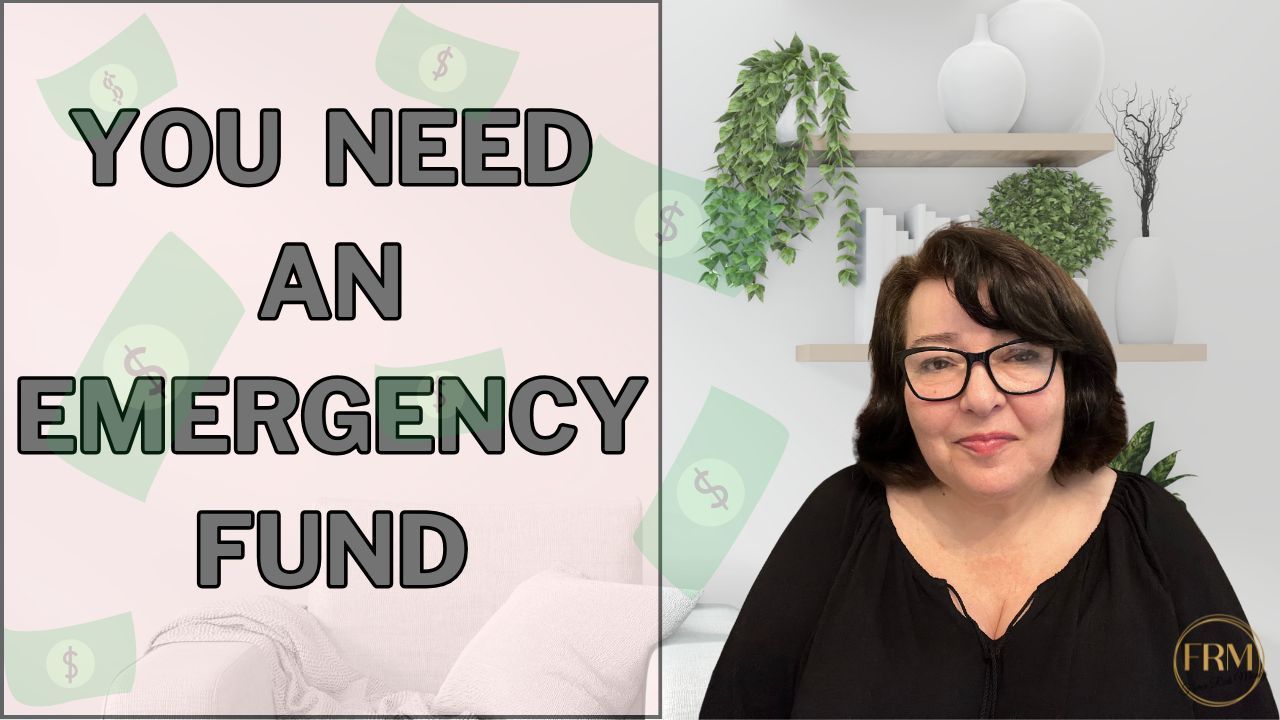Emergency Funds
Jul 05, 2025
Why we all need an emergency fund.
Today we’re talking about ab absolute necessity for financial stability, the Emergency Fund. We’ve all heard the term before, but do you know why it’s so important? In this video we’re going to break down what it is, why it’s crucial for your financial wellbeing and most importantly, how we can start building one even if we are living paycheck to paycheck.
Hi, it’s your friend Eva, and I’m in debt. No savings, no retirement and absolutely no business giving financial advice. But here we are. If you're ready stop being shamed, to tackle your debt alongside someone who's there, with no judgment, no extreme crazy advice, just real, practical money strategies, then hit like, subscribe, and sign up for my weekly newsletter!
But before we start, I’m not a financial advisor. When it comes to financial advice or any advice you find on the internet, do your own research.
What exactly is an emergency fund. Simply put, an emergency fund is a stash of cash set aside to cover unexpected expenses. Something like a medical bill, a passenger side headlight of a German car breaks. It cost $3500 but you have a mechanic who can get you a used part off eBay and charge you $1800. Thanks Mohammed.
This money is for true emergencies. In situations where you need access to cash to cover something urgent. It’s not a my friends want to go to Puerto Rico and I don’t have enough money. 5 days in Puerto Rico is not an emergency.
Think of it as your financial safety net. It’s not for vacations, new gadgets or even holiday shopping. It’ for those moments when life throws you a curveball and you need to catch it without going into debt.
Why is this fund crucial. Let’s face it, life is unpredictable. No matter how well you plan, there’s always going to be an unexpected expense. Man plans, God laughs.
Without an emergency fund, you may find yourself whipping out the plastic, a loan, dipping into savings or a retirement account to cover the expenses. This leads to a cycle of debt that’s hard to break.
Having a fully funded emergency fund helps you avoid financial stress. It gives you peace of mind knowing that if something happens, you have a cushion to fall back on. This financial buffer can prevent you from going deeper into debt, helps you stay on track with your financial goals and reduce the anxiety that comes with uncertainty. For me it’s the anxiety.
Now we know all the reasons we need an emergency fund, how much should it be?
The general rule of thumb is 3 – 6 months of your living expenses. I know it sounds like a lot, but you don’t need to fund it all at once. Start small and build over time.
How do we calculate the amount. Get out your budgeting sheet. You’re going to calculate your monthly expenses. Housing, utilities, groceries, insurance, and any other essentials. Total it up and multiply it by 3. That’s going to be the first goal and then by 6. That will be your second goal. Please remember that any amount saved is better than nothing. Focus on getting started instead of getting overwhelmed by the end goal.
How do we start building it. You need a separate bank account for it. This will ensure it doesn’t get mixed up with vacation money. There are high yield savings accounts and money market accounts. Look around and do your research.
You need to make this a priority. It can’t be once I get out of debt or next year I’ll… This is a now thing. If you can only set aside $10 a week, then $10 it is. It will add up.
Here are some ideas.
- Automate your savings. That is the fastest and easiest way to build it. Transfer the money every payday before you have a chance to spend it. Again, it doesn’t have to be $500 at a time. Put what you can but put something.
- Cut unnecessary expenses. Do you need Netflix, Hulu, Prime, Peacock, and all of the other streaming services out there. You can cancel and join again later.
- Use windfalls wisely. Tax returns, bonuses, birthday money from Nana. Add it to the account.
- Side hustle. Maybe take up a side hustle to make a few extra bucks.
Once you start building the emergency fund, you need to stay committed. Things are going to come up, you’re going to be tempted to dip into it for non-emergency things. That’s where discipline comes in.
How do you rebuild your fund after an emergency. Rewatch the video, that’s how you replenish it. Remind yourself, you did it once, you can do it again.
Do you have an emergency fund? Please let me know in the comments.

